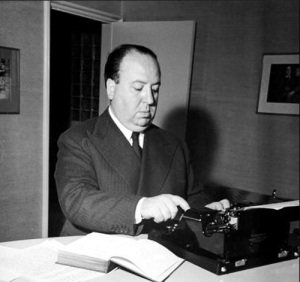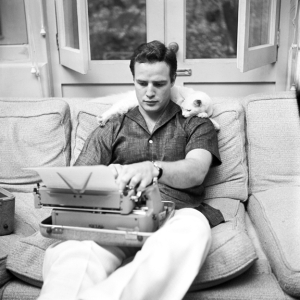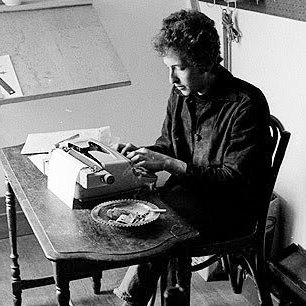Oh dear. All this fuss about one little piece of punctuation, one little mark. Not even a mark. Maybe half a mark. It’s slightly more than a period. It’s a runny period. It’s a period that has its period and doesn’t know it, so there’s – stuff – dripping out from under it. We all know how some people get a little nuts during that time. I guess that means a comma is female, a drippy comma some people want nothing to do with. Poor comma. No wonder she’s angry. You’d be angry too if so many people wanted to get rid of you. I’ve asked those people why they don’t like you, but all they say is “because we don’t need her.” That’s hardly an explanation.
Seriously though, I’m tired of articles by people who, as far as I know, have very little credibility when it comes to language usage and training other than to have written their opinions on a website. Yes, yes, I do that too, but I also had over three dozen years of training and practice before I got to this point. I have over 160 college credits and three state-stamped pieces of paper that certify I know what the hell I’m talking about. And what do the “serial killers” have? Well, other than attitude and persistence, I’m not really sure. What they also don’t have is patience, and I’ll prove it.
We don't need the comical cartoons that attempt to support the comma. You know, the ones such as “the strippers, JFK and Stalin” or "Let's eat Grandma," which is about a different comma. There was a successful book about someone who “eats, shoots, and leaves.” I’m not really sure if that one applies because I haven’t read the book. Why? I don’t need to read the book. After 25 years of teaching English and grammar, I have solid credibility. I learned the rules. In fairness, I also know that language is fluid and rules change when necessary. Things change. What “is” today may not “be” tomorrow. Of course, like mutations that allow a fish to walk on sand, changes don’t happen that quickly. They happen, no doubt there, but they might take a few hundred years.
Raise your hand if you’ve ever rolled your eyes when someone said “aks” instead of “ask.” Now put your hands down because it actually was a word a few hundred years ago. The full word – or words – were “ascian” and “acsian.” Or, “AHK-see-AHN” and “AHS-key-AHN.” They were Middle English words used in different areas of the Empire. Ascian was used in a more industrial northern area, while acsian was used in the southern farming areas.
When immigrants came to America, the farmers who said “aks” naturally went to the southern, farming states while those who said “ask” were in the more industrial northern states. Some have made the observation that “aks” is often used in urban areas and often by African-Americans as well as Caucasians living in mixed populations. Through the inhuman conveyor that was slavery, African-American learned the use of “aks” from the southern farmers, the plantation owners who were also saying “aks” because it was a regionalism of language, just as people of certain areas say “soda” while others say “pop.”
Eventually, ascian was shortened to asc, and then ask. Acsian became acs, or aks, but nobody who says it will spell it that way. It’s something that was passed down through generations of people, mostly slaves, who did or could not read. They learned language by using and hearing it, and that’s completely understandable. I know language changes and evolves, and I know there may be a day when there is a good reason to drop the serial or Oxford comma. That day, however, is not coming any time soon.
When I have asked those who trash the serial comma to explain why, their only answer is that “it isn’t needed” or “it’s a waste of time.” To them I would say, “Your appendix is no longer needed. Would you like me to remove it for you?” Their answers to both questions are predictable for two reasons. First, nobody wants an unnecessary amputation. Second, because the only people in my limited contact who have called for dropping the comma are younger people. It wasn’t until I was recently thinking about them while showering that I realized their problem. Wait, I don’t mean I think about young people while showering. What I mean is a younger guy called me out on this just after mowing the lawn and before showering, so I was thinking about him. I mean, I don’t think about young men while showering. It just happened to be a male who said – never mind.
 My point is that it is younger people, the 20-somethings who think they know everything just because they know that they know everything, they want to kill the comma. Unless highly educated, nobody under 35 is against the comma, and with good reason. Those young whippersnappers just have not read enough and, more importantly, have not written enough to realize the importance of the comma. If you have not immersed yourself into photography, you won’t know each nuance of the various apertures and shutter speeds. Not until you either take thousands of pictures and see the results. That’s called experience feedback, to which the youngsters are allergic. They’re too accustomed to hearing “good job” instead of “well, here’s where you can improve.” “Improve?!” they exclaim. “But I’m perfect! I have a thousand grade-school soccer trophies to prove it!” Yeah, go with that.
My point is that it is younger people, the 20-somethings who think they know everything just because they know that they know everything, they want to kill the comma. Unless highly educated, nobody under 35 is against the comma, and with good reason. Those young whippersnappers just have not read enough and, more importantly, have not written enough to realize the importance of the comma. If you have not immersed yourself into photography, you won’t know each nuance of the various apertures and shutter speeds. Not until you either take thousands of pictures and see the results. That’s called experience feedback, to which the youngsters are allergic. They’re too accustomed to hearing “good job” instead of “well, here’s where you can improve.” “Improve?!” they exclaim. “But I’m perfect! I have a thousand grade-school soccer trophies to prove it!” Yeah, go with that.
What the anti-comma crowd does not yet or refuses to understand is how many reasons there are for the serial comma. As stated, not enough (I didn’t say “all”) of them have read or written much of anything longer than a blog post, and it was probably only half the length of this one. They want to claim to know everything without learning or doing anything. They want to say the easier thing must be better or correct just because it’s easier.
There is another crowd against the serial comma, but their reason is not time or effort. Their reason is money. Magazines and newspapers hate the serial comma as well as two spaces after periods because, in print, space is money. Taking up less space in a story means more space for advertisements, which means more money. Perhaps many serial killers have grown up reading magazines that skipped the comma, and that's part of the confusion. Could be a contributing factor, right? Oh well.
It seems the only thing left to do is write my views and hope the serial killers can pull away from Facebook, Big Brother, or their smart phones long enough to read this. All of this. And they won’t read all of this. The proof will be in the comments left by serial killers. They’ll out themselves by proving they didn’t even read the whole thing and thus learned nothing. You’ll see.
In addition to not knowing why the serial comma is necessary, the youngsters also don’t realize there actually are situations in which you would NOT use the serial comma. So if we never use the serial comma, it would cause too much confusion as to whether it was or was not a situation that actually called for it. To the serial killers, that means thinking. They don’t want thinking or reasoning. They just want one method for everything, but that’s not good. That’s like using either scissors or a buzz saw for all situations, keep one and toss out the other. Maybe they’ll choose the buzz saw for their next haircut.
So, let’s get started.
The easy example for not using the serial comma is when two items are commonly linked, such as “macaroni and cheese.” It seems like two items, but they have been used together consistently enough that they identify one thing. There is a distinct difference between a pile of macaroni next to a few slices of cheese as compared to the familiar blue box from Kraft that contains the ingredients for golden gooey melted heaven, an unnatural cheese-like substance poured over elbow pasta. Because of the recognized link, any reference does not get the comma. Thus I would write:
For lunch I had juice, a burger, and macaroni and cheese.
Notice that we also use “and” twice because one of them is embedded in the item. One could argue, however, what if I really had a pile of rigatoni separate from but next to a few slices of Muenster or Swiss? If so, I would instead write:
For lunch I had beer, a burger, macaroni, and cheese.
Let’s go back to the gooey cheesy/pasta heaven for a second. To that, the serial killers might say, “Hey. Context clues! We know you’re probably having the Kraft version of macaroni and cheese, so you don’t need the comma. I know what you probably mean.” Probably? But what if I’m not? Is probably good enough? Will everyone who carries a gun probably shoot someone? Of course not.
Language removes the probable and possible through its preciseness because very often that’s all we have. You weren’t there when I had lunch. Therefore, you can’t be certain. That’s why I must use or not use the comma, to make sure you know without question what I had for lunch. That’s why, if I am talking to a room full of people and one person’s zipper is down, I won’t simply say, “Hey, your zipper is down.” I will say, “Nathan, your zipper is down.” Otherwise, everyone will grab their crotches. That is why language needs preciseness. Without it, wrong (yet funny) things will happen.
Of course a macaroni and cheese example won’t hurt anyone. However, there are places and times when it might hurt someone, such as directions for operating heavy or medical equipment. You can’t tell me that it can’t happen, but I can tell you that can happen. Therefore, the serial comma is needed. Now, how about the serial semicolon?
I visited Chicago, Illinois; Ventura, California; and Lafayette, Louisiana.
For those who might not know, when a comma within at least one part of a series, we use semicolons where the commas would have been. Above, they appear after the states because a comma is needed between the cities and states. Should someone feel steadfast enough to eliminate the serial comma, then what happens to that sentence?
I visited Chicago, Illinois; Ventura, California and Lafayette, Louisiana.
Now it seems that Ventura, California, and Lafayette are cities in Louisiana. Or, it could be that Ventura and Louisiana are cities while there’s also a place called “California and Lafayette.” Maybe it’s a college, like William and Mary. Or maybe it’s just a big pile of shit that we will have to clean up once the youngsters have butchered our language.
In fairness, serial killers just don’t know. Whether they were not taught or refused to learn, I can’t say. However, it is clear they just don’t know why the serial comma is needed. Based on most of what they write, they don’t even understand when to use a comma with a conjunction. They don’t know the difference between a compound sentence, but that's a post for another day.
More important than not knowing a few rules about commas is the fact that serial killers have not yet grasped the most important aspect of writing – communication. We do not write for “us.” Writing is selfless. Writing is for others. We write to transfer our thoughts to others who do not know or have not seen what we have seen. The youngsters are selfishly focusing on their own needs – mainly the need to do as little as possible – instead of the needs of those to whom they are writing. Serial killers are writing to broadcast their own thoughts instead of writing so others can accurately understand those thoughts. They only care about “Good job.” They don’t understand the value of “Thanks, I appreciate how you explained that. However, this could be better if you…”
Just as they seek to do away with the serial comma for their own convenience, the serial killers don’t have the patience to do more, learn more, understand more, and eventually gain more. They only know “me” and “now.” Until they can recognize not just the undeniable loss of a series without the comma, a difference that exists not in their own head but in the reader’s head, they likely cannot recognize the need for the comma. In a way, expecting serial killers to knowingly and willingly use the serial comma is like asking someone to enjoy a food they are convinced they dislike without having tried.
For those who want to ditch the serial/Oxford comma, here is your chance. Show me one instance, one example, just one sentence in which not having a serial comma is better. Show me a sentence in which taking away the comma improves the sentence. Until you can do that, then I stick by my claim that your motivation is nothing more than selfish laziness and your motivation is fueled by the belief that doing less equals having more. Perhaps you can change my mind, but – when it comes to writing – it will take more work than you've done before.








